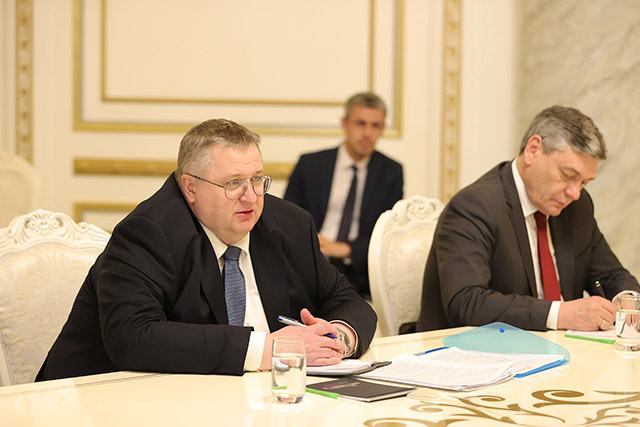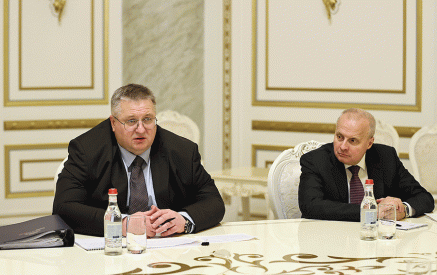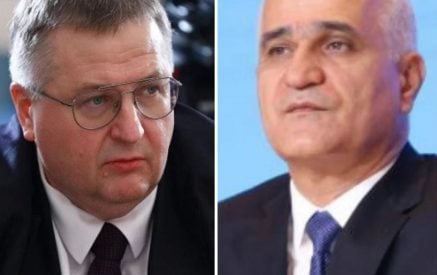Azatutyun.am. Russian Deputy Prime Minister Alexei Overchuk appears to have backed the Armenian government’s position on a planned road and a railway that would connect Azerbaijan with its Nakhichevan exclave through Armenia.
In a newspaper interview published on Friday, Overchuk stressed that a Russian-Armenian-Azerbaijani task force has never discussed any “extraterritorial corridors” seemingly demanded by Azerbaijani leaders.
Armenia and Azerbaijan are to reopen their border to commercial and passenger traffic under the terms of a Russian-brokered ceasefire that stopped their six-week war for Nagorno-Karabakh in November 2020.
Azerbaijani President Ilham Aliyev has claimed that the deal calls for a permanent land corridor for Nakhichevan passing through Armenia’s Syunik province. Aliyev said last December that passage through the corridor must be exempt from Armenian border controls. Yerevan rejected his demands.
Read also
The disagreements have seriously complicated the work of the trilateral commission dealing with practical modalities of the transport links. The commission is co-headed by Overchuk and his Armenian and Azerbaijani counterparts.
“It is important that in the course of the negotiations a principle was worked out, which formed the basis of approaches to defining this [transit] regime,” Overchuk told the state-run newspaper Rossiiskaya Gazeta. “The principle is: ‘Sovereignty over a road is exercised by the country through whose territory the road passes.’ This means that if the road passes through Armenian territory, then this is an Armenian road, if [it passes] through Azerbaijani territory, then it is Azerbaijani.”
“Russia has always supported the principle of the sovereignty of the parties,” he said, adding that it stems from the Armenian-Azerbaijani agreements brokered by Russian President Vladimir Putin.
“This means that at the negotiations of the Trilateral Working Group of the Deputy Prime Ministers, there is and there can be no talk of any ‘extraterritorial corridor’ that would infringe the sovereignty of any of the parties in any way,” stressed the Russian vice-premier. “In practice, the implementation of this principle means that in order to enter the territory of Armenia from Azerbaijan via unblocked or newly built roads, border and passport control measures will be the same as, for example, when entering Armenia from Iran.”
Overchuk’s remarks came two weeks after large-scale fighting on the Armenian-Azerbaijani border that left at least 280 soldiers from both sides dead. Armenia’s leaders say Baku resorted to the military action in a bid to force Yerevan to fully accept the Azerbaijani terms of a bilateral peace treaty and to open the “exterritorial corridor” for Nakhichevan exclave.
Aliyev insisted on the opening of the “Zangezur corridor” when he addressed a Shanghai Cooperation Organization summit in Uzbekistan on September 16, two days after the end of the border clashes.
Syunik is the sole Armenian province bordering Iran. In recent weeks, Tehran has stepped up its warnings against attempts to strip Iran of its common border with Armenia.
Speaking to Rossiiskaya Gazeta, Overchuk also emphasized the fact that Armenia is a member of the Russian-led Eurasian Economic Union (EEU).
“In the [Russian-Armenian-Azerbaijani] negotiations we proceed from the fact that Armenia belongs to the EEU’s common customs area,” he said. “For us, the customs border of Armenia is also the customs border of Russia, while the customs border of Russia the customs border of Armenia.




























































